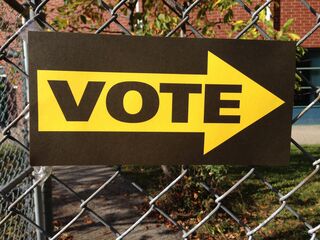Play
The Power of Ceremony: Thoughts on the Inauguration
How ritual holds us in trying times.
Posted January 23, 2021

Like many people across the globe, I was transfixed by the images coming out of Washington, D.C. on January 6. The footage was a master class in what chaos, rage, and anarchy can release into society. In my university days, I (Gillian) had many an argument with campus anarchists because I believed then, and I believe now, that anarchy always serves the ends of demagogues and dictators. Confusion, the fog of war, intimidation, and fear allow them to function freely and in their element.
Many of us in North America associate this type of public disorder with other styles of government. However, these situations have been sneaking up on us as public protest has been met with SWAT teams and riot gear. Also, there can be a kind of fatigue that occurs as a result of listening to so much disinformation from those in positions of power. It can be tempting to just turn our heads and not look.
Because of this growing exhaustion as a result of seeing relentless images of disorder, the traditional inauguration rituals served as a balm for the shattered consciousness of many of us. In this case, the ritual did what it is meant to do, whether purely personal or public — it upheld order, continuity, civility, and tradition. I drank in every moment of the proceedings, the beautiful formal clothing, the swearing on the Bible, the grace, the choreographed decorum, the soaring rhetoric, and courtly gestures.
Nothing could have telegraphed the message of pressing the reset button more powerfully than these elegant and century-old rituals because ceremony at this level also telegraphs that these are enduring institutions and practices that go far beyond the individual. They will continue even after we are gone. Rituals and ceremonies connect us to those who have gone before us and those who come after.
In his anthology, We Are What We Celebrate, sociologist Amitai Etzioni argues that ritual and ceremony are vital to the functioning of a healthy society and to our democracy and civic life. According to Etzioni, both domestic and public rituals play a crucial role in holding our communities and societies together. Just as holidays and festivals are reassuring and unifying in their regular recurrence, inauguration rituals play a crucial part in the maintenance of the body of the nation.
Research now shows that routines and rituals have powerful calming effects on the individual psyche and in the same way public ceremonies soothe the psyche of the nation. Many people talk about how they feel that they have been on high alert for the past four years with one ear out for the latest tweet that would unleash an avalanche of events. Even though I am a Canadian, it was only after the inauguration that I felt I could relax fully.
We watched people taking their oaths of office, swearing to uphold the American constitution, and felt that they meant it. We watched former presidents from both parties move in to support and participate in this peaceful transfer of power. These are not purely religious rituals but they are the practices that allow for democracy to run smoothly and peacefully. They remind everyone of the higher and larger principles that undergird everyday life. Everyone knew there would be work to do the next day: facing the COVID epidemic, racial injustice, and economic disarray, but for this one day there was pageantry, beauty, and reverence that allowed for a reorientation and recommitment.
From my northern perspective, it was truly moving to watch these ceremonial representations of democracy. Just as on Election Day, it was touching to watch poll workers fight through fatigue to do their job, and to see people stand patiently for hours in line to vote. Living in a world, as we do, where fascism is on the rise and many of the world’s powerful countries are dictatorships and oligarchies, these rituals take on a whole new power and meaning. They preserve the workings of this miraculous and fragile process called democracy and elections according to the will of the people.
References
We Are What We Celebrate: Understanding Holidays and Rituals. Edited by Amitai Etzioni and Jared Bloom. New York: New York University Press, 2004.
Nick Hobson. The Emerging Science of Ritual. A New Look At An Ancient Behavior.
https://thriveglobal.com/stories/the-emerging-science-of-ritual-a-new-l…


